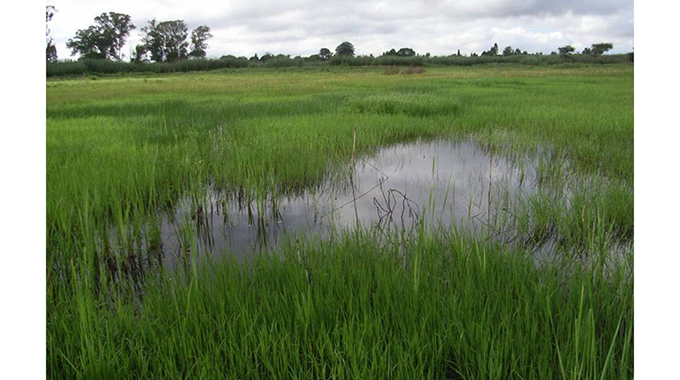
Blessings Chidhakwa-Municipal Reporter
For the majority of us, water simply flows from a faucet, and we think little about it beyond this point of contact.
A sense of respect for the wild river has been lost, including the complex workings of a wetland – that intricate web of life that water supports.
The precious wetlands have a direct bearing on people’s daily lives, but its protection and impact is usually undermined.
It boggles the mind that Harare has lost half of its wetlands in the last decade, a move that has reduced delivery of clean water due to siltation of supply dams in turn leading to higher costs of water production.
The city spends about US$2 million monthly to procure the essential water treatment chemicals, burdening ratepayers who have to bear the costs.
According to statistics revealed by Harare Wetlands Trust recently, out of the 50 percent wetlands lost in the capital city, Epworth was the worst affected area with the highest percentage of 76,6, Houghton Park 71 and Budiriro 49.
The other percentages of wetlands lost are National Sports Stadium area 36,4, Dzivaresekwa 32,5, Warren Park 31, Mbare 30,8, Kuwadzana 30 and Prospect Park 15,7.
Harare Wetlands Trust official, Dr Robert Cunlife, believes if the preservation of wetlands is taken lightly the city was headed for a disaster.
“Destruction of wetlands is leading to reduced delivery of clean water due to siltation of supply dams, increased water pollution, higher costs of treating water and reduced recharge of groundwater reserves,” he said.
Harare is running dry due to the continued plunder of wetlands which are the second source of water for the capital city after run off.
There seems to be consensus among stakeholders that there is an urgent need to protect water sources from further destruction. So huge has been the plunder of wetlands in Harare that President Mnangagwa has added his voice to calls to protect wetlands as water sources.
While the causes of wetlands destruction are vivid for all to see, what is now needed is to preserve those that have been left as one stitch saves many.
The Parliamentary Portfolio Committee on Higher and Tertiary Education, Innovation, Science and Technology Parliamentary Portfolio Committee chairperson Lindiwe Maphosa said the protection of wetlands would be a game changer for the city.
“These wetlands have multiple benefits which include filtering water but breaking down harmful pollutants including chemicals and act as natural sewage systems, filtering out waste and running clean water into rivers,” she said.
“The growing scale of land development and blatant disregard of the premium importance of wetlands is cause for concern for both Government and civil society. This scenario is, however, a clarion call for us to act and to act decisively.”
Over the past decade, many structures have been built on wetlands which have been lost at an alarming rate.
Many boreholes have dried up and drilling has become more expensive as the water table has gone down to over 60 metres.
Gone are the days when a borehole driller could strike water at 20 metres or so.
During the just ended rainy season, home-owners living on wetlands and on the edges of streams also recounted the experience they went through when their homes were flooded due to rising water tables and streams that burst banks due to high rainfall.
A resident in Unit P, Seke, Chitungwiza, Mr John Chakanyuka, sobbed while narrating the trauma his family went through.
“The rains flooded the whole house,” he said. “It was above the knee level and we had to sleep on a wet bed as we had nowhere to seek refuge.
“All our stocked food recently bought after receiving salaries was spoiled and we are surviving at the mercy of well-wishers and we appeal for urgent food aid.”
Desperate home-seekers, duped by land barons, continue to build homes on flood plains, wetlands, and river banks, disregarding advice from environmentalists and local authorities. Because of corruption within local authorities acting in collusion with land barons, people with homes built on sensitive ecosystems, are paying a huge price in terms of destruction of property and risk of death and diseases.
The Harare Wetlands Trust and other environmental activists have repeatedly appealed to the government and the Environmental Management Agency to save the remaining wetlands ecosystems that are crucial to maintaining vital water sources.
The country has seven protected wetland sites and has a total of 1 117 wetlands covering 793 348 hectares, which is about 1,5 percent of the country’s land area.
Zimbabwe now needs to take practical steps to stem the progressive encroachment on wetlands through collaboration with various local and international organisations.
